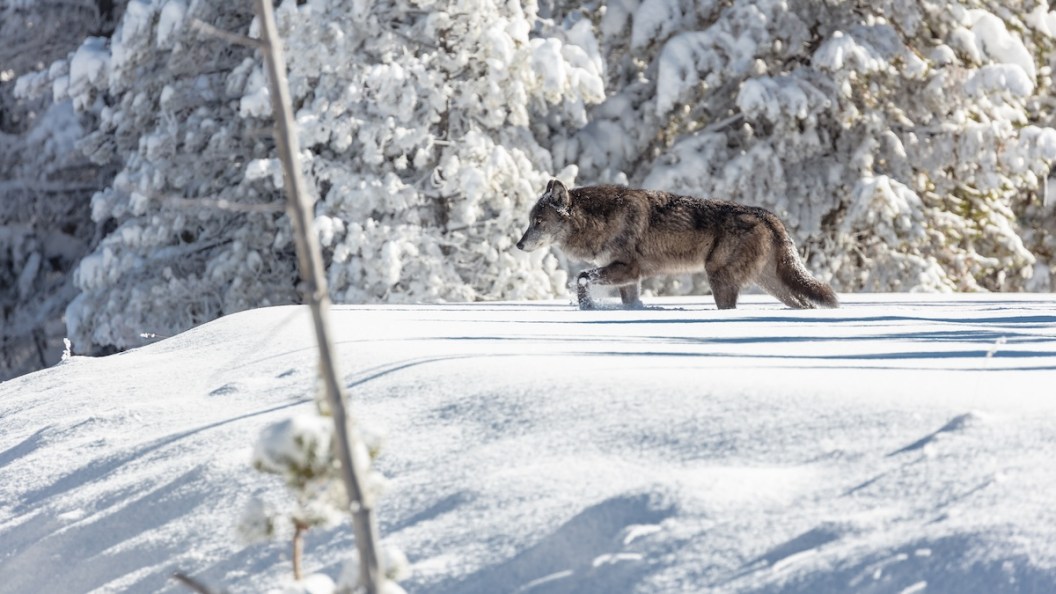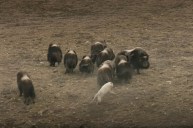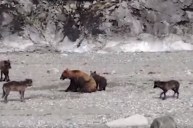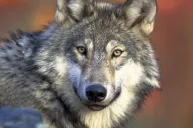Congress passed a bill this week to delist gray wolves from the Endangered Species Act, which would lift federal protections for the animal in the lower 48 states. Supporters of the measure say farmers and ranchers need the ability to defend their livestock while critics say the species still needs protection as many still misunderstand the animal.
The bill dubbed "Trust the Science Act" passed in a 209 to 205 vote and largely along party lines with 205 Republicans and four Democrats supporting it. The vote also follows some high-profile incidents exemplifying concerns on both sides of the political aisle.
Earlier this month, the Colorado Parks & Wildlife agency reported four cases of wolves killing livestock since the predators were re-introduced to the Colorado wild in December. On the other end, there's the case of a Wyoming man who went largely unpunished after he tortured and killed a wolf. The incident sparked widespread and international outrage.
In a statement, Rep. Lauren Boebert, a Republican from Colorado who proposed the measure, argued that gray wolf populations have already recovered. "Rather than celebrating the gray wolf recovery success story, leftists want to cower to radical environmentalists and keep them on the Endangered Species Act list forever," Boebert said, adding that the measure "puts people ahead of violent predators."
Many of Boebert's Republican colleagues shared her sentiment. Arkansas's Rep. Bruce Westerman, who chairs the House Committee on Natural Resources, called the measure "a commonsense, pragmatic step forward to giving local communities power to manage the wildlife they know best."
Speaking for those who opposed the measure, Rep. Jared Huffman, a Democrat from California who also sits on the Natural Resources Committee, described the bill as relying on "narratives that seem like a mix of Little Red Riding Hood and YouTube conspiracies about the Chupacabra." Huffman argued that since federal protections for gray wolves were lifted in the Northern Rocky Mountain Region, Idaho, Montana, and Wyoming created wolf management plans based on "stubborn, anti-predator myths."
Montana state law allows the use of bait and snares to hunt gray wolves, Idaho eliminated bag limits and allows hunters to hunt from vehicles, and Wyoming designated certain areas of the state "predatory animals zones" so wolves can be killed at any time and in nearly any manner.
Wildlife experts say gray wolves help create a healthy and balanced ecosystem as they help keep deer and elk populations in check and force other predators like grizzly bears and mountain lions to compete for food. Gray wolves were added to the list of endangered species in 1972, when the population in the U.S. were about 300. Since then, they've grown to roughly 20,000. However, the majority of the species, approximately 11,000, reside in Alaska.
In a statement, Robert Dewey, vice president of government relations for Defenders of Wildlife, argued that policies of "predator control programs" were what decimated gray wolf populations. "This bill is nothing more than a poorly disguised attempt at hiding a seething hatred of one of our nation's most iconic and respected species," he said.
According to the website GovTrack, which tracks federal legislative proposals, the Trust the Science Act, or House Bill 764, has a 19% chance of passing. The measure was proposed in February 2022 and issued to the House Resources Committee in September 2023. Since passing the House, it's off to the U.S. Senate.




